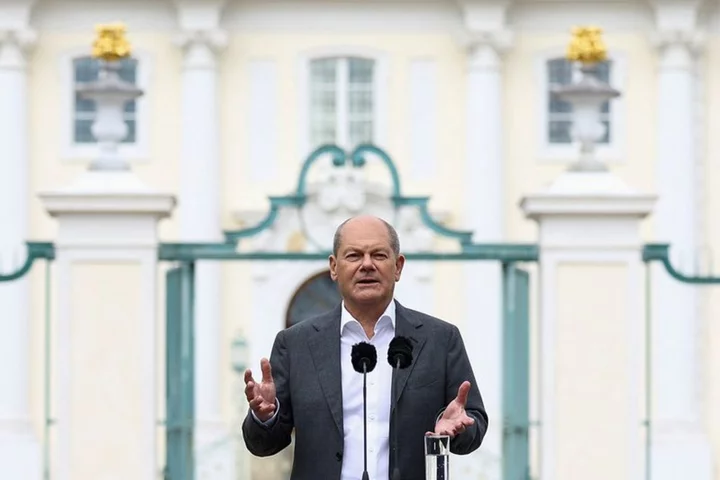MESEBERG Germany's government must be careful that its economic stimulus measures do not spur inflation, Chancellor Olaf Scholz said on Wednesday, shortly after his cabinet approved 32 billion euros ($35 billion) of corporate tax cuts to boost flagging growth.
German consumer price inflation, harmonised to compare with other European Union countries, rose by an annual 6.4% in August, preliminary data showed on Wednesday, edging lower from 6.5% in July but more than the 6.3% forecast in a Reuters poll.
Earlier data had shown inflation rising in four of six key German states this month, raising fears that a recent downward trend in the national figure would stall.
"Measures to promote the economy (must be) so targeted and so precisely developed that they do not lead to a new surge in inflation, but that they only help to stimulate growth," Scholz said at a cabinet retreat in Meseberg.
The Growth Opportunities Actapproved by the cabinet on Wednesday covers the period 2024 to 2028. It gives incentives to companies to make climate-friendly investments, provides tax incentives for research and allows companies to offset more losses against profits from other financial years.
The draft law will now enter a process of consultation with states and municipalities and German finance minister Christian Lindner said their feedback would be heard.
"However, I would like to make one point, namely that the states and municipalities, just like the federal government, must have an interest in securing the economic strength of our country," Lindner said, calling on them to support the law.
The German economy - Europe's biggest - stagnated in the second quarter, showing no sign of recovery from a winter recession and cementing its position as one of the world's weakest major economies.
Responding to criticisms that the government had been slow to react to mounting signs of economic slowdown, Lindner said: "The overall political signal is that this government knows the situation in the country, it knows the situation in the economy and it is acting, it is agile."
Scholz said there were signs an economic upswing is on the way and that fighting inflation is a priority.
Inflation is not good for businesses and citizens and the European Central Bank is therefore on the right path with its monetary policy tightening campaign, Scholz said.
"The central bank's decisions to reduce inflation are right in the interest of monetary stability, the future viability of Europe, the citizens and companies," he added.
The European Central Bank raised interest rates for the ninth time in a row in July, increasing the rate it pays on banks' deposits from 3.50% to 3.75%, the highest level since 2000, before euro banknotes and coins came into circulation.
($1 = 0.9185 euros)
(Reporting by Maria Martinez and Thomas Escritt, Editing by Rachel More, Friederike Heine and Catherine Evans)

